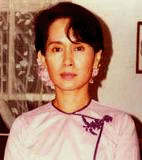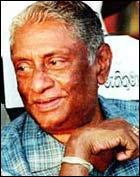.gif)
Asia
.gif)

Burma: The Military Boots Keep Marching in Place

Sri Lanka: Assassinations and a Fractured Peace Process

Fear and the Nuclear Option
Twenty years ago, when people concerned about nuclear weapons warned about a "war without winners," they were accused of spreading fear and negativity. The counter-argument was that the U.S. nuclear arsenal was a shield protecting the west from a Soviet Union bent on world domination.

60 Years Later: A Look at Hiroshima
August 6, 2005 marks the 60th anniversary of Democratic President Truman's use of the atomic bomb against the people of

Nuclear Proliferation: A Neo-Con Goal?
John Bolton offered a harsh and uncompromising view on
